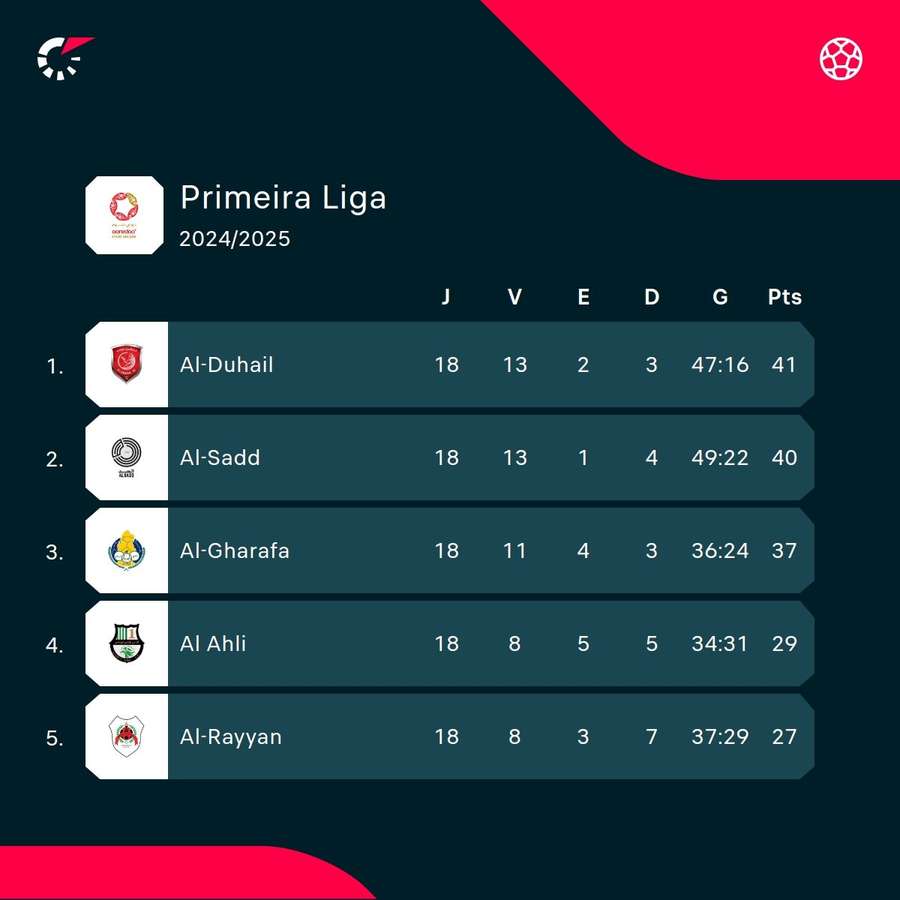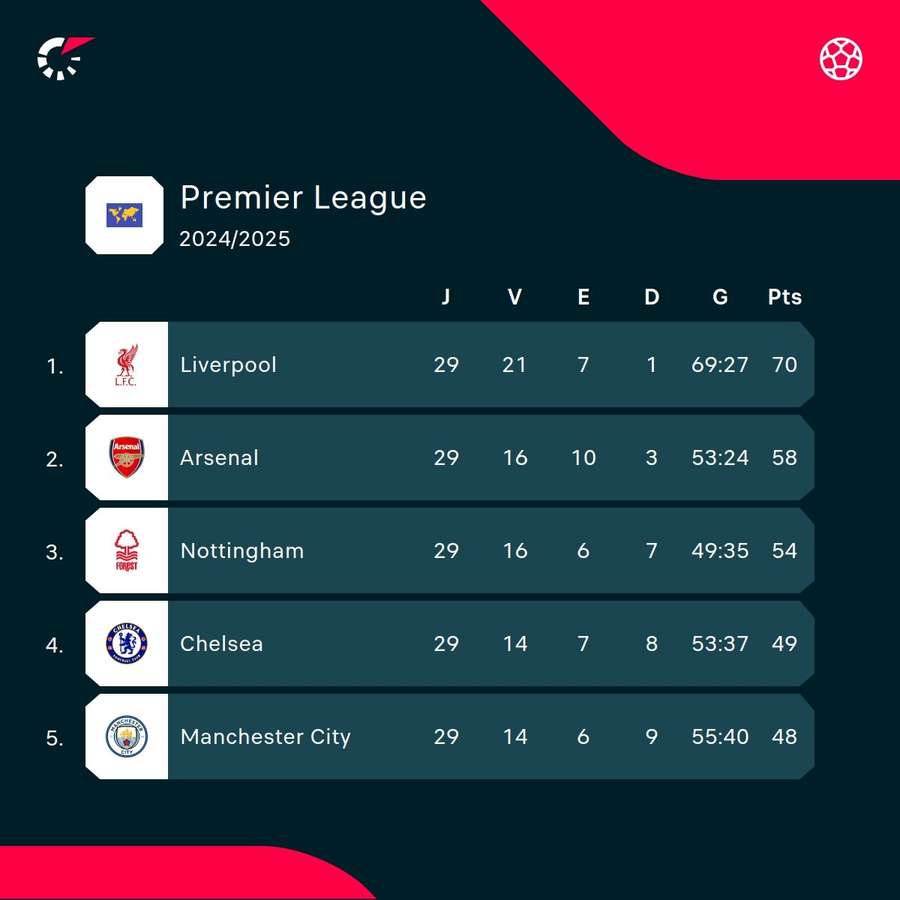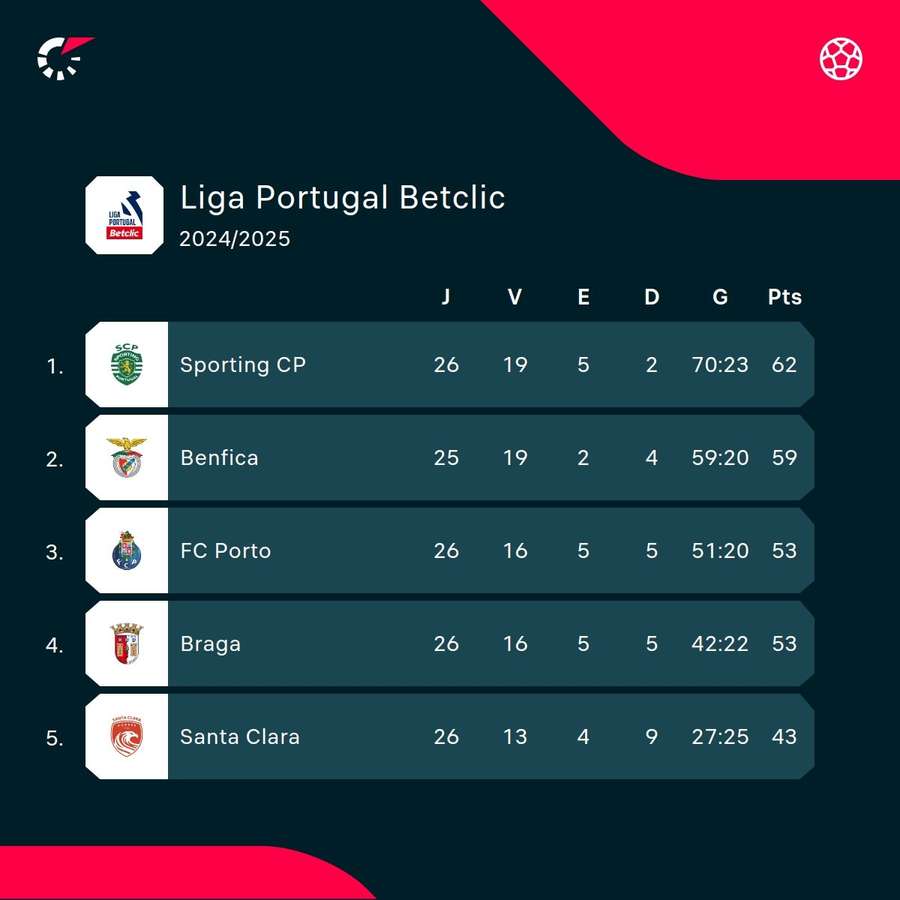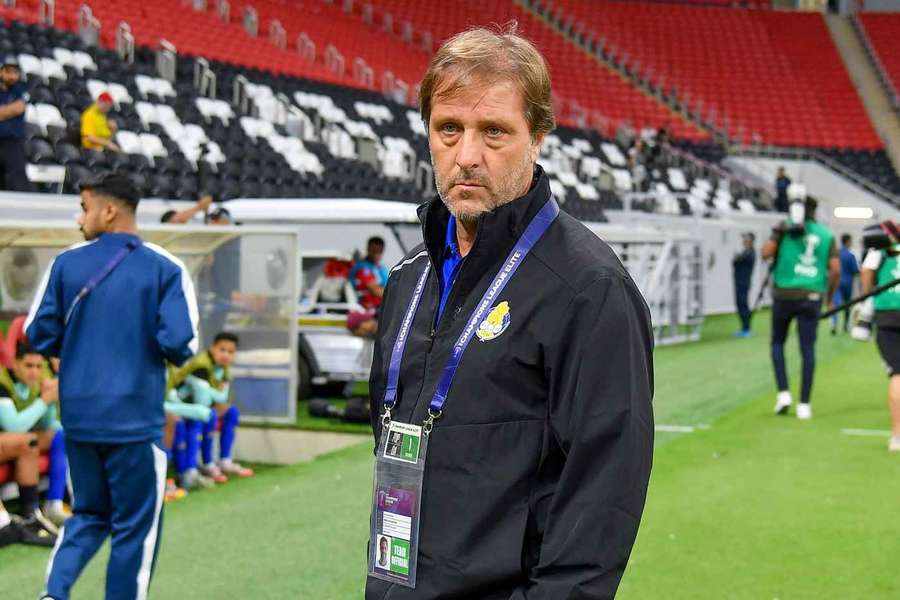A former player, Martins had had an extensive coaching career, with spells at Marítimo, Rio Ave and Vitória SC, where he consistently managed to qualify for European competitions. In 2018, he traveled to Greece, where he won three titles with Olympiacos, which was his first experience outside Portugal.
He is currently at Al Gharafa, where he arrived in 2022 and has helped rehabilitate one of Qatar's leading clubs in a league that is trying to emerge.
Martins spoke to Flashscore, where he discussed his present and future plans.
What brought you to Qatar?
"Several things. Firstly, I wanted to experience a new reality. I thought it was important for me. I'd left a club and a league that was extremely demanding, and this offer came along, and from that perspective, I accepted.
"Another was the growth of Qatari football, where the league is managed by a committee, like the NBA, which is managed by Antero Henrique, who made me aware of the reality, what he wanted to implement and where he wanted to be in five years' time.
"I found it interesting. And since football gives us the opportunity to get to know other places, it helps us to grow personally. I also recognise that it's an attractive project financially."

Did you notice that after the 2022 World Cup in Qatar, people became more interested in football? Was there a boom? Was there a Cristiano Ronaldo effect in the region?
"The Cristiano Ronaldo effect is certainly more in Saudi Arabia. But when Ronaldo plays, he has a tremendous impact, it has a global, galactic dimension. I don't think there's any club with an image as strong as his.
"In that respect, he's brought a fantastic image to the Arab world. With regard to the league, we have to talk about the social reality: there are three million inhabitants, 15% of whom are Qataris, many of whom are from North Africa, but also many from Asia who are not very connected to football.
"However, football has developed immensely in this respect. In terms of fans who go to the stadium, Al Gharafa has increased exponentially, although far short of what we want to have. Another aspect is that the game in Qatar has improved enormously.
"There are very good coaches, young players are starting to be signed with transfers of some impact. There are players coming through at the age of 28, 29, and that's making football grow. This is evident in physical terms and the speed of the game.
"The clubs have excellent conditions, excellent pitches, now there's a problem that everyone is changing, which is to professionalise the departments, and that makes it much more competitive."
At Olympiacos, you won the Greek championship three times, but that was perhaps the biggest and most successful challenge of your career. Was it special?
"It was, but I have to recognise that Olympiacos was the club that gave me the conditions to become a champion. As you can imagine, neither Marítimo, Vitória SC, nor Rio Ave gave me those conditions.
"Although what has been done at all three clubs, compared to Olympiacos, is a very creditable job, especially the first year at Vitória, when we finished fourth and reached the final of the Portuguese Cup, which was a fantastic season.
"I remember several seasons at Marítimo with lots of young players coming through, my bet and the club's bet, and we had very good seasons. At Rio Ave too, each in their own way. No titles, but we achieved our goals."
You're also known for making the most of your players' qualities. I'll mention the most well-known, Raphinha, at Vitória SC, and Ederson, at Rio Ave. They were very young, could you already see their potential?
"Yes, you could see that they were both very young players with a lot of talent, quality and fantastic scope for progression. If they developed, they could reach higher levels. Of course, I never imagined that Raphinha could reach Barcelona, not because I didn't see the quality, but he was very young.
"He had a very good season with me at Vitória SC, at Sporting too, and now he's more visible and they say it's his best season ever, but only he can say. He's much more mature, he was already a natural finisher, a winger with that particularity; he was very forward and didn't miss a chance.
"He arrived from Brazil at a very young age and had to learn the moments and phases to press and pause. Ederson was another player who was obvious. When he went to Rio Ave, I have to admit that I went for Cássio for reasons of experience.
"Not because I believed he wasn't ready, in terms of quality and value, but because Rio Ave were going to have decisive games - Super Cup and Europa League - and it was important to have a player like Cássio.
"But after three or four months, as a result of his quality, he started playing. He's a very strong goalkeeper in the air and his footwork is absolutely fantastic. It was obvious that they were going to reach big team level, but top teams, I don't know, football is made by walking."
Raphinha has always had that desire to learn and that's a characteristic that makes him stand out. Family structure also makes all the difference.
"I have a very close relationship with the players. Although I didn't get to know his parents very well, I could tell there was a very strong family structure and he was very attached to his parents. And then he had a hunger to win in the world of football and that made the difference in getting to where he is now.
"He was a player who always wanted to listen, always very attentive to information. He had talent, but he's where he is thanks to hard work, dedication and commitment."
Nuno Espírito Santo is following the successful line of Portuguese coaches in England. Are you surprised by the work he's doing at Nottingham Forest?
"Nuno has had a brilliant season, but it's not just now. He won the championship in Arabia (with Al Ittihad) two seasons ago. At Wolverhampton, when he took over the team in the Championship (second tier), he went up and kept the club going. Good work at Rio Ave too.
"I think his least successful was at FC Porto, but otherwise, he had some great seasons. And this one is brilliant at every level. It's one of the most demanding leagues, the most difficult, the most extraordinary and Nottingham's third place is fantastic. I don't think any coach in the world could have achieved these results."

Marco Silva is also doing very well at Fulham. Ruben Amorim went to Manchester United, but things aren't going well. But he has the quality that is recognised by the work he did at Sporting...
"I saw Marco Silva the other day at the National Coaches Association forum, he's been in England for eight years, so he doesn't need to prove anything, because his work speaks for itself. So many years at a club like Fulham shows that he's a stable coach, that he knows what he's doing, that people believe in him.
"Ruben Amorim has been more difficult, he joined halfway through, a club with huge demands and probably a squad that isn't up to the standard of a team that wants to be champions. He'll have to suffer this year, prepare the team, next year build a new team with his model, with players with his identity and then we'll see.
"At Sporting he was brilliant. In England, as a result of what I said before, he needs more time. And don't forget Vítor Pereira, who arrived at Wolverhampton in a difficult situation and is already nine points off the bottom.
"Vítor Pereira arrived at Wolves and the team has made a qualitative leap forward. It's a demonstration of his quality. He's brilliant, he's not behind what Nuno is doing because it's taken less time and with the constraints he has."
You spoke passionately about the Premier League. Was that a challenge you'd like to have in the future?
"Yes, the Premier League or the Championship, where you can go up. Why not? It's the greatest show on earth"
You're a project coach; would you fit in well there?
"No doubt about it. I'm available and prepared for any circumstance. From my experience, I've coached teams that didn't want to go down, in European competitions, with big financial problems, and others with no such problems.
"I've coached teams where social demands weren't so high, and others where they were. This guarantees that I'm ready for any team in the world."
At the moment, Portuguese coaches are also making a name for themselves in Brazil, which is a huge market. Clubs often want immediate results and don't think much about what needs to be built. Is it attractive?
"I've known Brazilian football for many years. Since I've been working in the league, I've had a very strong database of people in Brazil. I know it well, from Serie A, to Serie B, to the state leagues. Brazil has so many players of such quality that from one moment to the next, they're playing at a higher level.
"That's what's so captivating. Many of them aren't going to make it to the big time, but they're at a very strong level in technical terms. It's a fantastic championship that I'd like to try in the future.
"I've been getting a lot of invitations from Brazil, things haven't quite worked out yet, but I'd like to try out the large contingent of such talented players they have."
So moving to Brazil is a big possibility?
"No, but I think it will happen sooner or later. We never know tomorrow, but I believe it will happen. Just as I believe it will happen in England."
Speaking of the Club World Cup, there's a huge overload of matches, there are protests from players and coaches, and there are more and more injuries. Is this taking a complicated turn for professional football?
"We still need to make a qualitative leap in football. There have been too many games, too many competitions at club and national team level. The players have no space or time to recover. They don't even have time for the normal holidays that a citizen needs. It's closely linked to the relationship between effort and injuries, which are greater and more serious.
"The numbers, in financial terms, have reached new heights because the competitions are getting bigger and the clubs are retaining more money. There's a middle ground that we're going to have to work towards, maybe certain clubs are going to have to give up some competitions.
"We have a problem with quality, because there are players who are worn out. Against Denmark, I saw Portuguese players who, a week earlier, had been extraordinary in the Champions League and then weren't the same with Portugal.
"The squads are going to be bigger, with more people working. There are many injuries that can be prevented if there is good work and football still has a long way to go in that respect. In order to do this, we need more people working with us, so that players don't have such big injuries and there's a balance in competitions."
But it's also complicated for the coaches because there's little time to practice the coach's ideas.
"Less and less. I don't have that problem in Qatar because there is less competition. But at Olympiacos, it was train, recover and play. And when we had a longer week, it was a process, but a lot was lost because there was no time.
"That's why I say that pre-seasons are very important. More specialised coaches will be needed for each sector, and I'll say it again, football has to make a qualitative leap. And that's only possible with more people."
We can't finish this conversation without talking about the Portuguese League. We're going into a crazy final stretch, with a fierce battle between Sporting and Benfica. Can we put aside FC Porto and SC Braga, who are already some distance behind?
"There's still a lot to play for, Sporting have to go to Luz, Benfica have to go to Dragão and Braga. There are so many points, so nothing is set in stone, although the main candidates for this season are Sporting and Benfica.
"Sporting have a better line-up, but Benfica have more solutions in their squad. It's going to be a fun championship, fought out until the last moment. We can never rule FC Porto out because they're a big club and from one moment to the next they can reappear."
It could end up being the big games that decide everything.
"Yes, because I have to recognise that this year, I thought there was a lack of quality in most of the teams. Compared to last year, there isn't the same quality, and that's why the big teams don't drop many points.
"It's a very big difference in potential. We'd like the league to be more competitive, but when you sell so many players every year, it's normal. Some years it's not possible to rebuild teams with quality.
"There are teams that sell two, three or four players and struggle at first and then manage to rectify things, but this year you can see that difference from the start."

Finally, Portugal qualified for the final four of the Nations League in a difficult way. A lot of noise has been created around Roberto Martínez. Do you think there's a reason for that?
"Denmark have a lot of quality players. It's not just that we're more tired, but they have a lot of players playing in big leagues too. They're one of those teams that, when they have a good 11, are very hard to beat.
"Many years ago, they were European champions, and nobody expected it to be possible. It was a very bad game, but that's not all there is to football. We had some very difficult moments in the second leg, Denmark made us very uncomfortable, and we didn't manage to create an antidote so as not to emphasise where they were strong.
"We lost a lot of balls in the first phase of the build-up, which took away some of our judgment and increased our nerves. But on the other hand, I saw a team with enormous belief. Even after 2-2, the team quickly pulled together. If on the one hand we had strategic approaches that weren't the right ones, on the other hand we saw a team with enormous belief."

